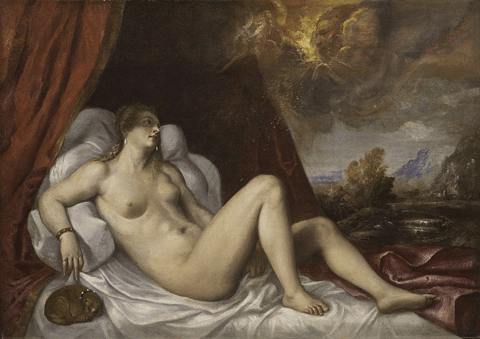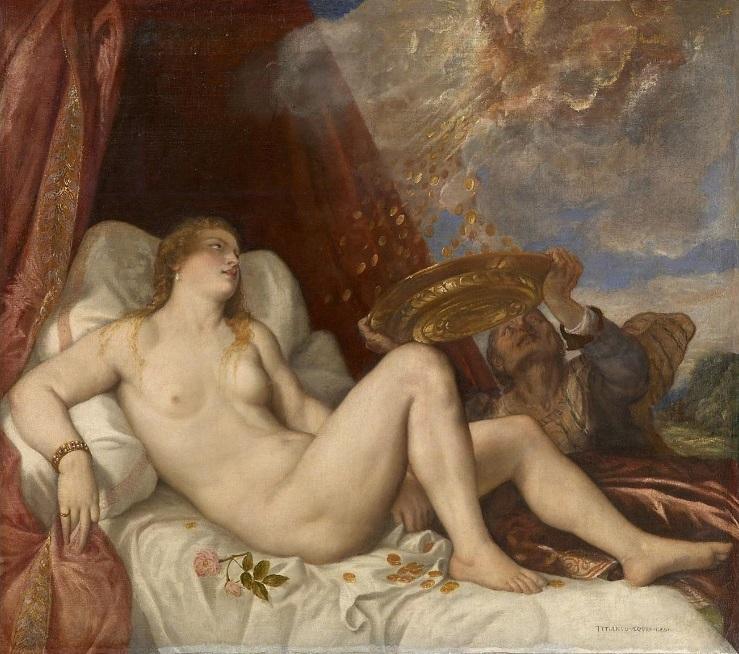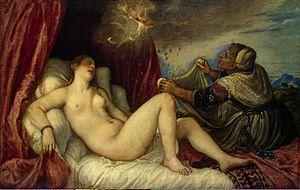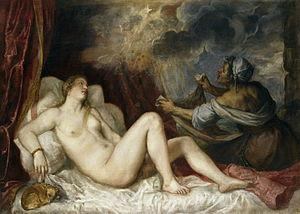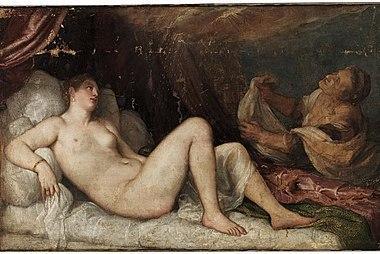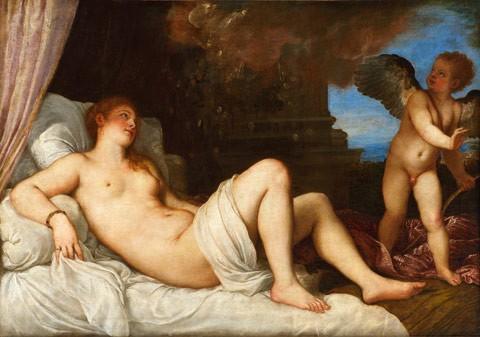Description
Danae, one of the most sensuous paintings of the Italian Renaissance, is one of several examples of the genre of erotic mythologies in Western art popularized by Titian.
The loves of the gods were a favorite theme of Titian's princely patrons. During the course of his long career, he became the greatest and most influential interpreter of these amorous episodes, drawn from Ovid's Metamorphoses and other literary texts.
A celebration of the recumbent female nude, the Danae represents the legendary maiden, in bed and about to receive Jupiter, the king of the gods. Attracted by reports of her beauty, Jupiter appears to her in the guise of a shower of gold coins.
Commissioned by Cardinal Alessandro Farnese, a grandson of Pope Paul III, the painting was completed during a visit Titian paid to Rome in 1545-1546. Wealthy and worldly, Alessandro Farnese was a distinguished patron of the arts and a notorious womanizer with a mistress (a courtesan named Angela). At a time when ecclesiastics were under fire for their licentious and corrupt ways, it was wise to transform an all-too-contemporary courtesan into a mythological figure whose nudity was sanctioned by classical precedent.
The Danae was looted by German troops on behalf of Field Marshal Hermann Göring during World War II and was later discovered in the Austrian salt mine at Alt Aussee. The canvas was taken to the Central Collection Point in Munich by the so-called Monuments Men in 1945 and returned to the Italian government two years later.
Danae , or Danae Receiving the Golden Shower, is a series of at least six versions of the same composition by the Italian painter Titian in his workshop, made between 1544 and 1560.

